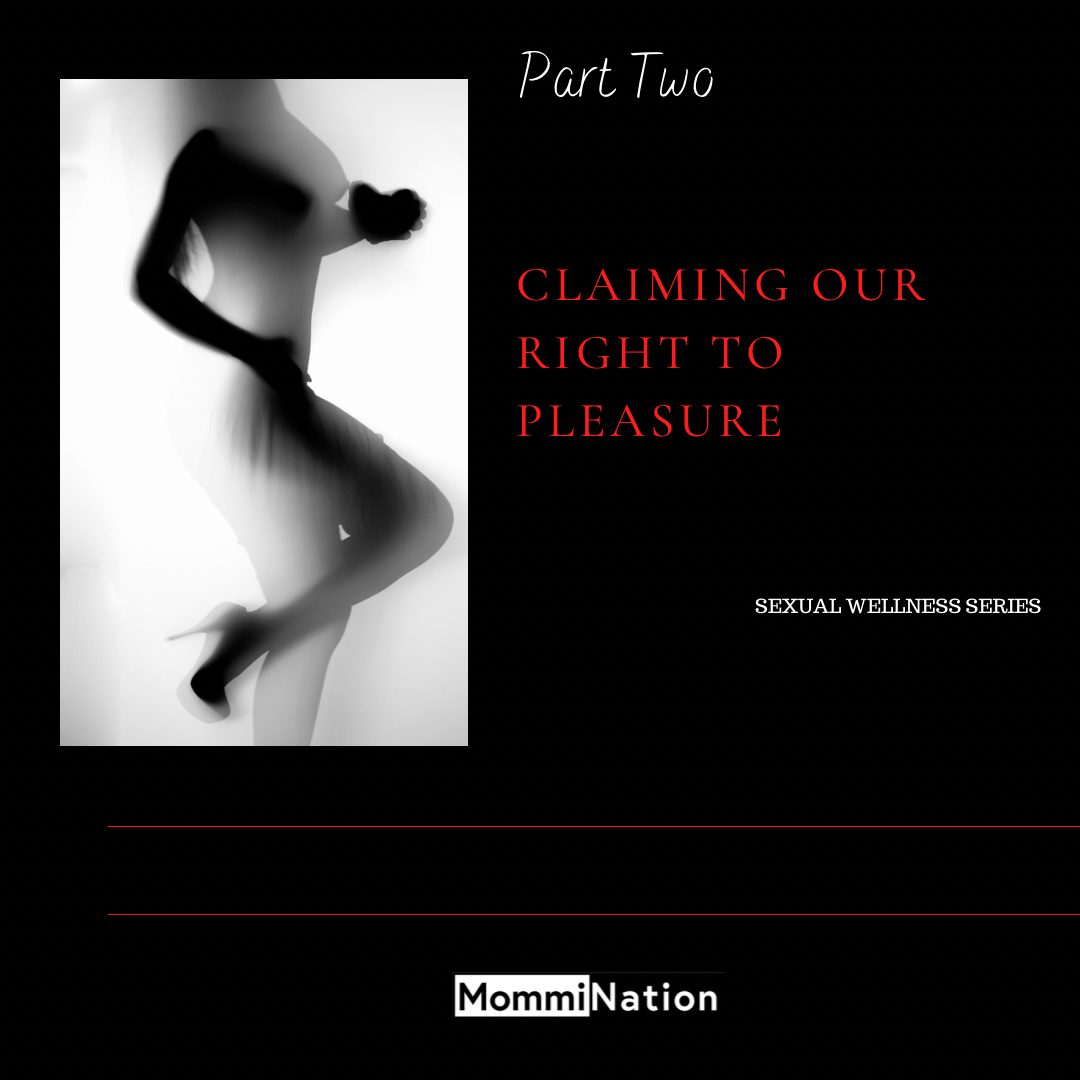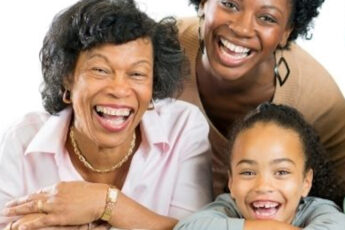February is a time when we think about love, sensuality, and sexuality. MommiNation sat down for a conversation about sexual wellness and pleasure with reproductive justice activists Brittany Brathwaite, MSW, MPH, and Kimberly Huggins, LSW, MPH, MEd, who are co-owners of Kimbritive, a sexual wellness platform for Black women.
MommiNation: What is sexual wellness?
KH: We see sexual wellness as the relationship that you have with your body, and how that ties into your emotions and your relationship with others.
BB: I think when people hear sexual wellness, they hear sexual health. The World Health Organization has said sexual health is more than just the absence of disease, but also pleasure.
For us, wellness is a journey as opposed to a destination. So, we think of sexual wellness as a journey that includes pleasure as one of the central components of that journey.
MommiNation: So, what role does pleasure play in sexual wellness, and what have you learned about women’s ability to kind of embrace pleasure?
KH: A lot of women don’t really have the opportunity to learn the answer to the questions: ‘what do I actually enjoy?’ and ‘what do I want to invite in my sexual experiences?’ And, that is partly because of shame and stigma. But, you should be able to know your body enough to be able to communicate that with your partner so that you have a sexual experience that speaks to your needs, your desires, and your safety needs.
BB: Oftentimes people are inundated with advice like ‘use this condom’ or ‘get tested,’ and no one’s really asking you, “do you actually enjoy sex?” And, in particular, for Black women that is important because so much of the way that sexuality is talked about in our lives has to do with an experience of sexual oppression, or sexual narratives written by other people that’s rooted in exploitation and commodification. So, we saw Kimbritive as a way to take up some air in the room and start to have a different conversation on our terms.
MommiNation: For the Black women you’ve worked with, what are the biggest barriers to experiencing deep, true pleasure?
KH: As a therapist I work primarily with people living with HIV. I’ve noticed that a lot of my clients feel like they’re not deserving of a sexual experience that is pleasurable or beautiful because of this disease attached to them. I think that extends to a lot of Black women in general.
BB: Many women have this idea of ‘sex happens to me,’ or it’s something that you perform. And, people often prepare for sex in the sense of, ‘Oh, my body needs to look this way,’ or ‘I need to dress this way,’ or ‘I have to go get a wax.’ All these things are not for you personally. They are usually for your partner. So, we say, “Hold up! Wait a minute! What part of sex are you in?”
Sex is not something that happens to you. You’re participating in it. I think we’re also masturbation whispers to people. People often find out about masturbation and their first sexual wellness toy from us because it’s such a taboo. And, where do you go to find out that information, anyway? We give people permission to connect with themselves and be vulnerable, because vulnerability is a huge part of sexual wellness.
MommiNation: How does a woman know that she’s genuinely experiencing pleasure?
BB: When you ask the question, “What makes me feel good?” We open up our workshops with, “When was the last time you felt good?” Pleasure can occur in different ways. Sometimes it’s ‘I took a nap today, and I woke up and I felt good,’
KH: Or, ‘I got my nails done today.’
BB: It’s what makes you feel good. That’s what pleasure is to us. You know what doesn’t make you feel good. You generally know that. The harder question in the work is, “what makes you feel good?”
MommiNation: What would you say to women about what they should or could do to increase pleasure for themselves, and then maybe with their partner or partners?
KH: Think about how many times you tell yourself “No” throughout the day. We are conditioned to tell ourselves “No.” And we’re trying to get women to give themselves permission to say “yes.”
BB: Start with “what can you say ‘Yes’ to?” What is an “I’m excited to” as opposed to “I have to”? We talk about consent as a super pleasurable thing. So, what are other things in your life that you’re giving an enthusiastic yes to? When you figure out those things, then you have decided for yourself what is pleasurable. And, it’s not to say that stigma or shame are not going to come up about what we find things pleasurable. But, first its naming that, “This feels good to me.”
And, it’s not to say that stigma or shame are not going to come up about what we find things pleasurable. But, first its naming that, “This feels good to me.” Practice giving yourself giving enthusiastic yeses. Sometimes you may also need to create a list of these are the ‘No, this does not feel good for me’ things, and these other things are the ‘Yeses.’ And that helps you have better conversations with your partners around anything that you want to do because you’re clear about what your enthusiastic yeses are.
_______________
Bio: Kimberly Huggins, LSW, MPH, MEd is a licensed social worker, a therapist, and a sex educator. Brittany Brathwaite, MSW, MPH is a Public Health Social Worker, reproductive justice activist, and sex educator. Kimbritive is a growing digital platform supporting Black women their sexual wellness journey providing content community and expert care where we feel seen, heard and celebrated.









Leave a Reply